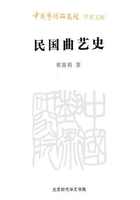And so with reference to the law of combinations. The old maxim was, Corpora non agunt nisi soluta. If two substances, a and b, are inclosed in a glass vessel, c, we do not expect the glass to change them, unless a or b or the compound a b has the power of dissolving the glass. But if for a I take oxygen, for b hydrogen, and for c a piece of spongy platinum, I find the first two combine with the common signs of combustion and form water, the third in the mean time undergoing no perceptible change. It has played the part of the unwedded priest, who marries a pair without taking a fee or having any further relation with the parties. We call this catalysis, catalytic action, the action of presence, or by what learned name we choose. Give what name to it we will, it is a manifestation of power which crosses our established laws of combination at a very open angle of intersection. I think we may find an analogy for it in electrical induction, the disturbance of the equilibrium of the electricity of a body by the approach of a charged body to it, without interchange of electrical conditions between the two bodies.
But an analogy is not an explanation, and why a few drops of yeast should change a saccharine mixture to carbonic acid and alcohol,--a little leaven leavening the whole lump,--not by combining with it, but by setting a movement at work, we not only cannot explain, but the fact is such an exception to the recognized laws of combination that Liebig is unwilling to admit the new force at all to which Berzelius had given the name so generally accepted.
The phenomena of isomerism, or identity of composition and proportions of constituents with difference of qualities, and of isomorphism, or identity of form in crystals which have one element substituted for another, were equally surprises to science; and although the mechanism by which they are brought about can be to a certain extent explained by a reference to the hypothetical atoms of which the elements are constituted, yet this is only turning the difficulty into a fraction with an infinitesimal denominator and an infinite numerator.
So far we have studied the working of force and its seeming anomalies in purely chemical phenomena. But we soon find that chemical force is developed by various other physical agencies,--by heat, by light, by electricity, by magnetism, by mechanical agencies; and, vice versa, that chemical action develops heat, light, electricity, magnetism, mechanical force, as we see in our matches, galvanic batteries, and explosive compounds. Proceeding with our experiments, we find that every kind of force is capable of producing all other kinds, or, in Mr. Faraday's language, that "the various forms under which the forces of matter are made manifest have a common origin, or, in other words, are so directly related and mutually dependent that they are convertible one into another."
Out of this doctrine naturally springs that of the conservation of force, so ably illustrated by Mr. Grove, Dr. Carpenter, and Mr. Faraday. This idea is no novelty, though it seems so at first sight.
It was maintained and disputed among the giants of philosophy.
Des Cartes and Leibnitz denied that any new motion originated in nature, or that any ever ceased to exist; all motion being in a circle, passing from one body to another, one losing what the other gained. Newton, on the other hand, believed that new motions were generated and existing ones destroyed. On the first supposition, there is a fixed amount of force always circulating in the universe.
On the second, the total amount may be increasing or diminishing.
You will find in the "Annual of Scientific Discovery" for 1858 a very interesting lecture by Professor Helmholtz of Bonn, in which it is maintained that a certain portion of force is lost in every natural process, being converted into unchangeable heat, so that the universe will come to a stand-still at last, all force passing into heat, and all heat into a state of equilibrium.
The doctrines of the convertibility or specific equivalence of the various forms of force, and of its conservation, which is its logical consequence, are very generally accepted, as I believe, at the present time, among physicists. We are naturally led to the question, What is the nature of force? The three illustrious philosophers just referred to agree in attributing the general movements of the universe to the immediate Divine action. The doctrine of "preestablished harmony" was an especial contrivance of Leibnitz to remove the Creator from unworthy association with the less divine acts of living beings. Obsolete as this expression sounds to our ears, the phrase laws of the universe, which we use so constantly with a wider application, appears to me essentially identical with it.
Force does not admit of explanation, nor of proper definition, any more than the hypothetical substratum of matter. If we assume the Infinite as omnipresent, omniscient, omnipotent, we cannot suppose Him excluded from any part of His creation, except from rebellious souls which voluntarily exclude Him by the exercise of their fatal prerogative of free-will. Force, then, is the act of immanent Divinity. I find no meaning in mechanical explanations. Newton's hypothesis of an ether filling the heavenly spaces does not, I confess, help my conceptions. I will, and the muscles of my vocal organs shape my speech. God wills, and the universe articulates His power, wisdom, and goodness. That is all I know. There is no bridge my mind can throw from the "immaterial " cause to the "material" effect.
The problem of force meets us everywhere, and I prefer to encounter it in the world of physical phenomena before reaching that of living actions. It is only the name for the incomprehensible cause of certain changes known to our consciousness, and assumed to be outside of it. For me it is the Deity Himself in action.















